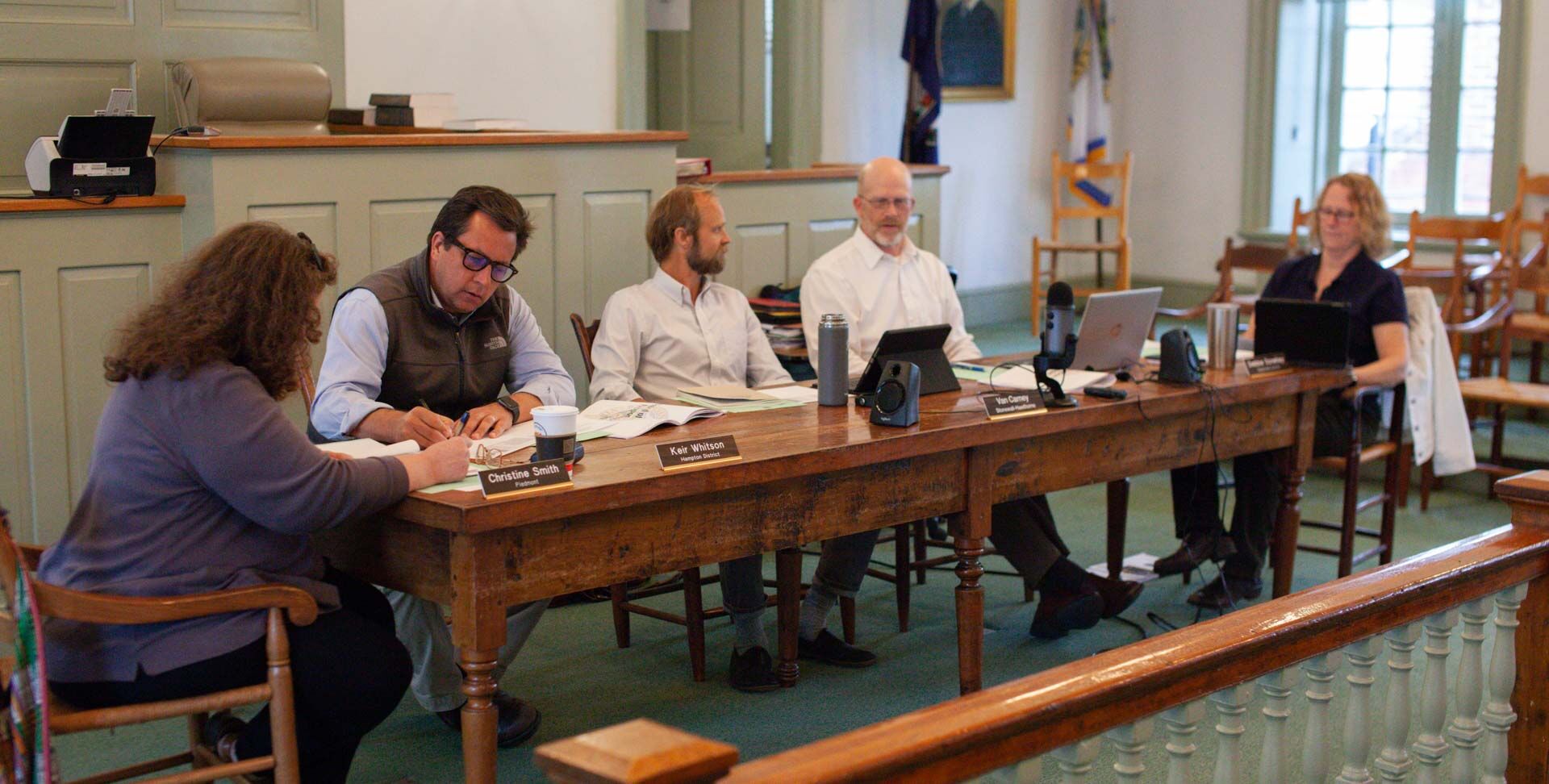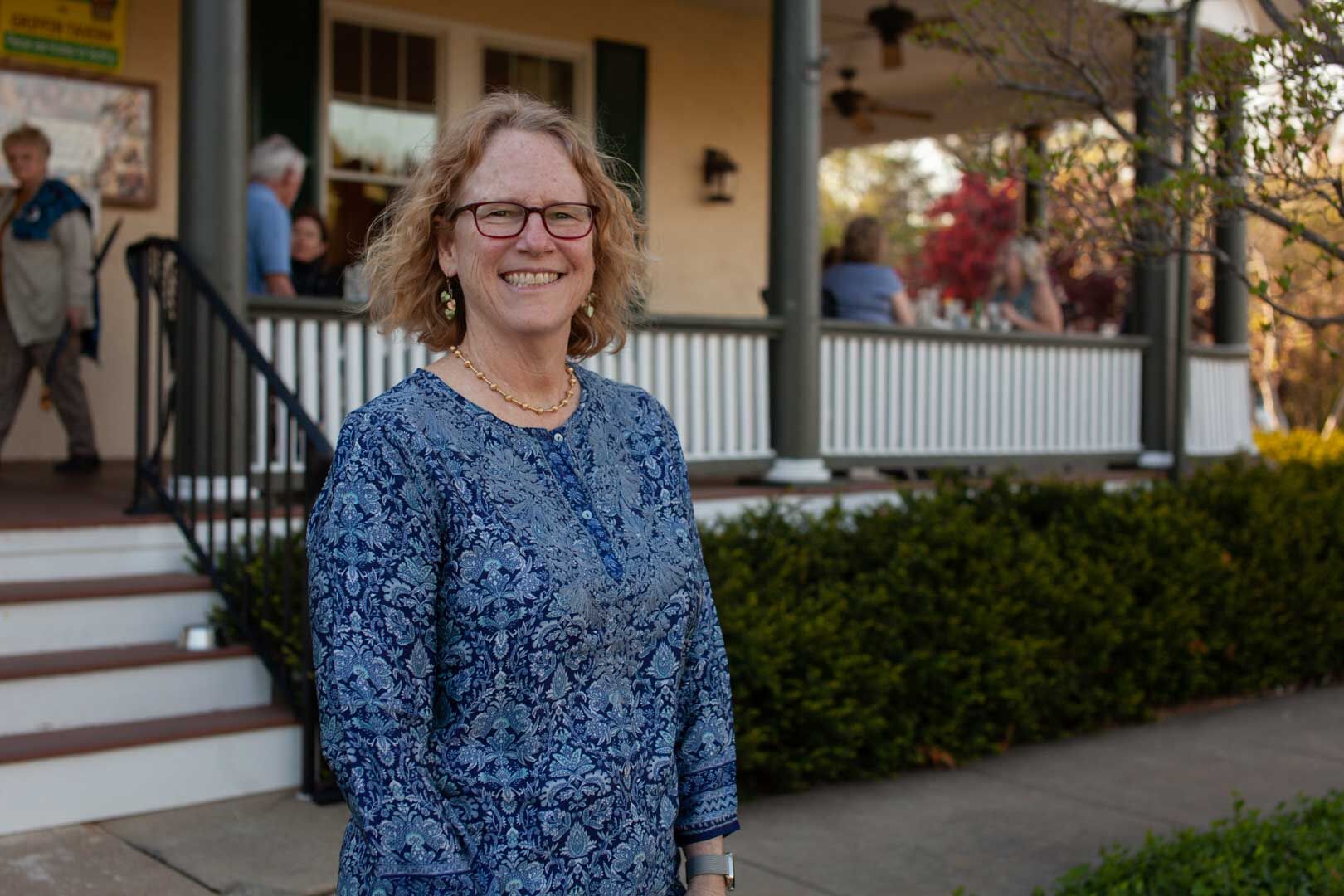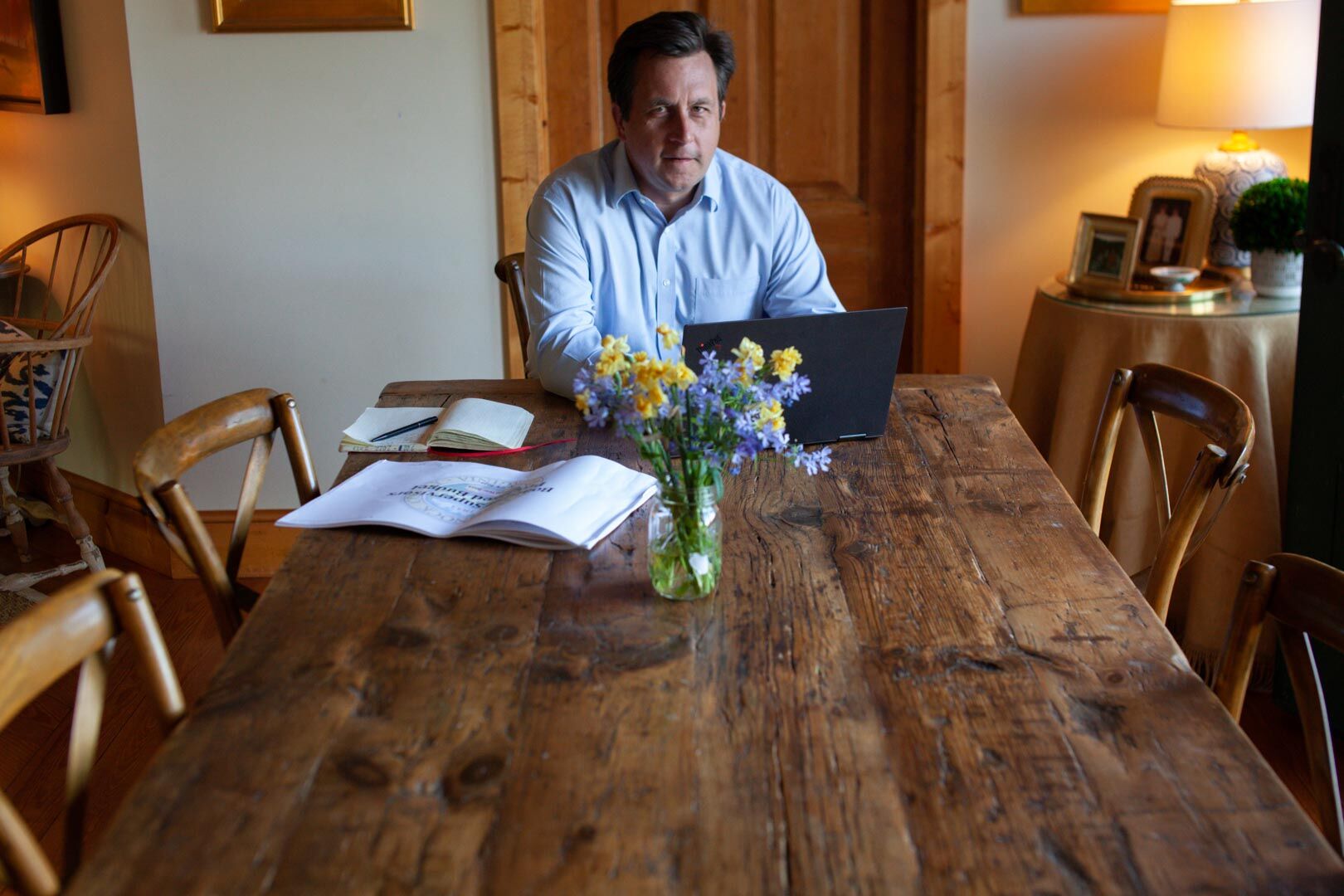The Rappahannock County Board of Supervisors on Monday will be faced with making the hugely consequential decision of whether to advance universal internet expansion across the finish line as part of what County Administrator Garrey Curry called the “most important project” the county has undertaken in decades.
While a majority of the body is expected to support the measure for it to advance, the decision isn’t as clear-cut for other members in the minority.
“If we just decided we just don’t want broadband here, I think those consequences of being the only uncolored spot on the map would be very bad for our community,” Curry said in an interview.
The Board of Supervisors will decide whether to enter into a contract with private internet provider All Points Broadband and the Northern Shenandoah Valley Regional Commission (NSVRC) that would commit Rappahannock County to an eight-county agreement using state and federal funds to build universal fiber infrastructure.
If the Supervisors enter into the contract, Rappahannock officials expect to be able to expand internet access to thousands of underserved homes at no cost to the taxpayer.
Wakefield Supervisor and Chair Debbie Donehey said this project is a “once in a lifetime opportunity,” especially for a rural community like Rappahannock where construction of fiber infrastructure can be extremely challenging because of the terrain and lack of housing density.
“When you don’t have choice, I think [this project] becomes extremely important,” Donehey said of the lack of internet service options available to many Rappahannock residents. “We don’t have the ability to have cell towers everywhere and cell service everywhere, and multiple Comcast or other fiber companies … Prove me wrong, I’d be happy to be wrong, but I think it’s a once in a lifetime opportunity.”
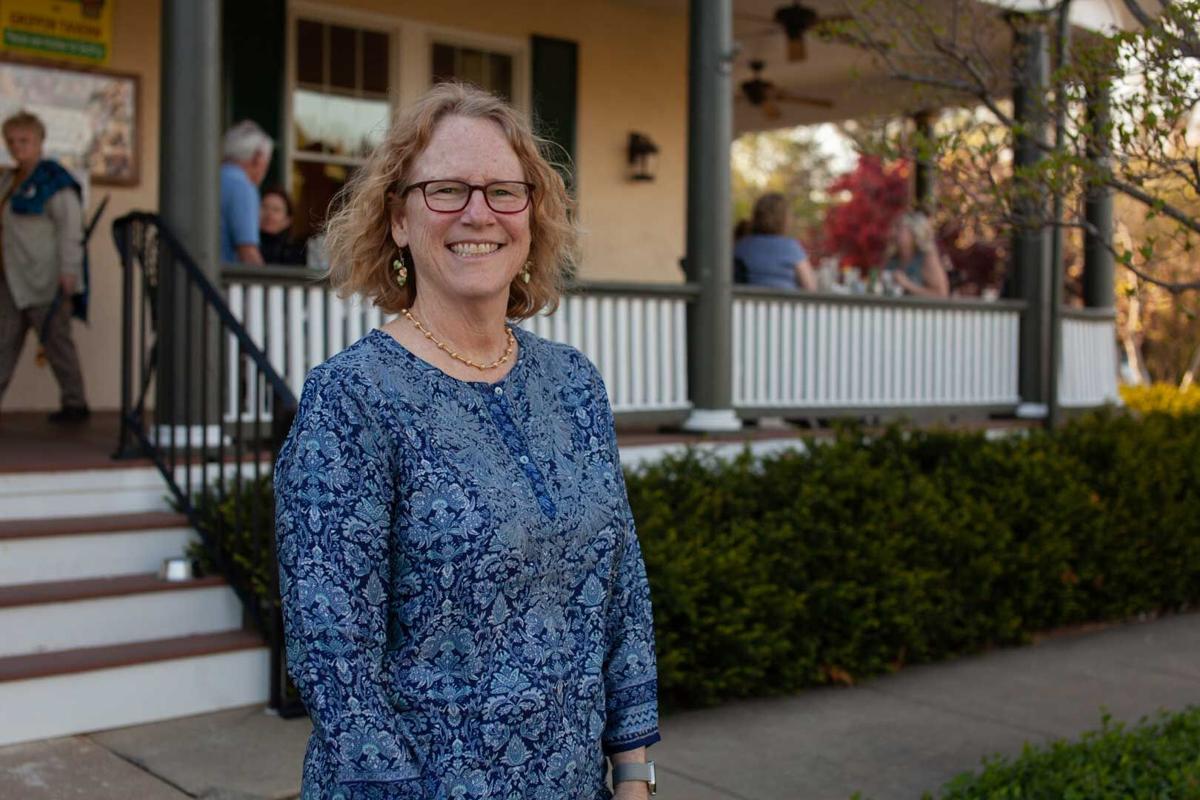
Wakefield Supervisor and Board Chair Debbie Donehey at the Griffin Tavern, her business in Flint Hill. (Photo/Luke Christopher)
Rappahannock County has always suffered from connectivity issues, and many residents are committed to protecting its viewsheds by opposing the construction of utilities like cell towers. Other internet providers in the county, like Piedmont Broadband, are less than ideal for residents who have geographic barriers that prevent a stable connection. And dial-up options are known to be archaic and sluggish.
Stonewall-Hawthorne Supervisor Van Carney, the most recently-elected member of the body, started his tenure in January after the application process for state funding was completed. On the campaign trail, Carney said he hadn’t heard any voters oppose the prospect of gaining high-speed internet.
“Rappahannock never had a railroad, Rappahannock never had telegraph, Rappahannock has historically not had cell towers, and there are certain things that Rappahannock just doesn’t do — we’re an outlier in many respects,” Carney said. “And this project will get people online completely, and the people that have gone through COVID totally detached and totally needing the internet for numerous reasons, whether it’s school or health and safety, all that kind of stuff, are going to finally get it.”
How Rappahannock’s universal broadband plan – powered by federal subsidies – became irresistible
The COVID-19 pandemic added pressure on officials to solve the county’s internet service woes. Stories become widespread of students attempting to connect to Zoom and do homework from home, while adults in the same household also had to work using the same internet connection that became stretched too thin. That resulted in students sitting in parking lots to reach hotspots to complete homework.
As a part of a federal initiative to help states strengthen broadband connectivity, the pot of money being offered through the Virginia Telecommunications Initiative (VATI) was larger than usual, and localities also received portions of their allocated federal stimulus funds that can be used to cover the project costs.
“All of a sudden because of COVID, there was so much money being thrown at the problem. And I know it ultimately comes down to taxpayer dollars at the federal level, but $20 million to Rappahannock County is hard to even fathom,” Donehey said. “So to be at this point of vote or no vote for the potential of every household who was unserved to have fiber is pretty exciting.”
Hampton Supervisor Keir Whitson said the county has been waiting decades for an opportunity like the one All Points is proposing, and the pandemic created an unusual set of circumstances that are allowing localities to build the infrastructure.

Hampton Supervisor Keir Whitson working at home in Harris Hollow. (Photo/Luke Christopher)
He said just over a year ago, there were no internet service providers that wanted to invest in Rappahannock’s rural economy. Whitson said he would consider it “malpractice” to vote against this project.
“For me, it has gotten to a point where it’s truly a no brainer,” Whitson said. “And I understand that there’s risk to the extent that we don’t have complete and total control over the government agency and the private entities that are delivering this system to us. But that risk I think is one worth taking.”
But two members, Jackson Supervisor Ron Frazier and Piedmont Supervisor Christine Smith, have been constant critics of the project since its early days.
Frazier voted against entering into an agreement with All Points Broadband to apply for state funding, making him one of only three Board of Supervisors members across the eight counties in the agreement to vote against the application. Smith abstained from the vote, saying at the time she had unanswered questions about the project.
Frazier said he won’t support the contract as it currently stands.
“It’s a shame, it probably is a very significant vote that we’re involved in [on Monday], but we don’t know any information about it,” Frazier said. “We have no maps, we don’t know where [All Points is] building. We’re going to be locked into this thing for at least three years.”
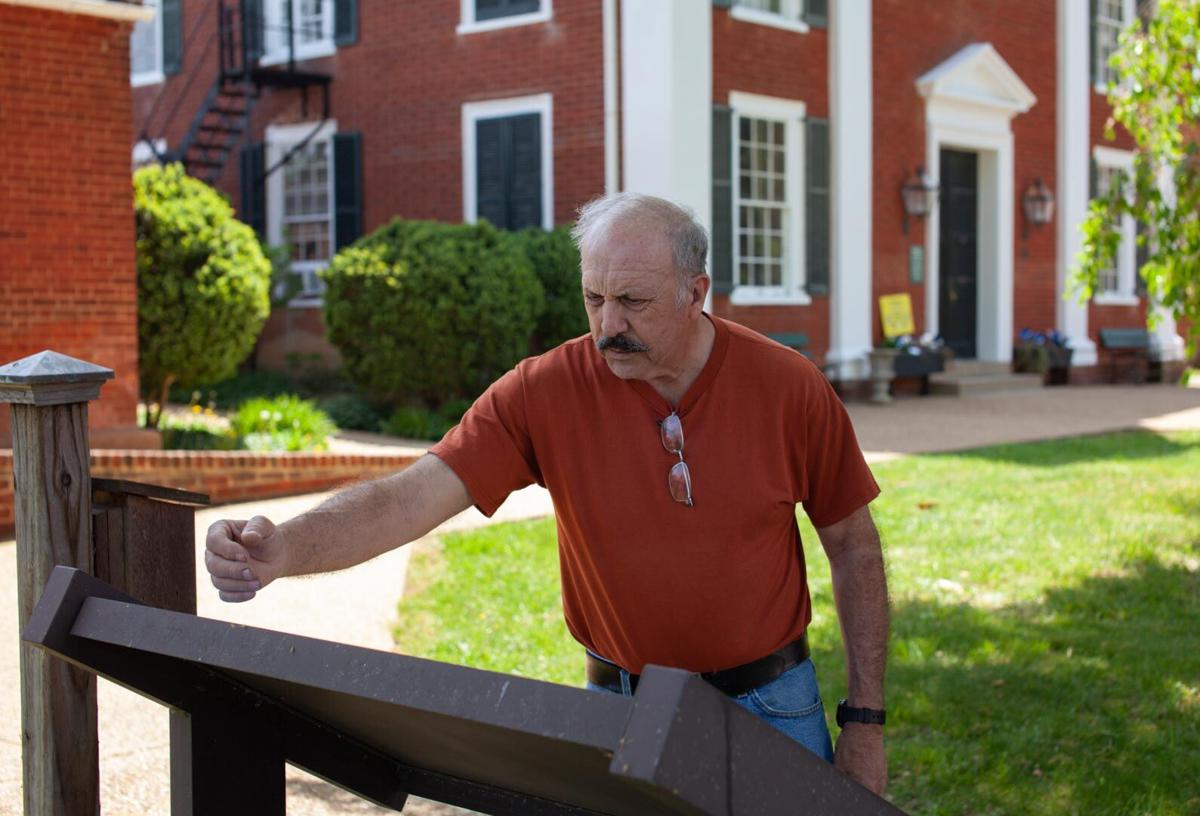
Jackson Supervisor Ron Frazier brushes off debris from the historical plaque explaining the Confederate Monument outside the county courthouse. (Photo/Luke Christopher)
Frazier and Smith have both expressed concern over the lack of communication from All Points and NSVRC throughout the process, and both entities’ unwillingness to answer questions from members of the body. Smith did not return several requests for comment for this report.
In a Broadband Authority meeting earlier this month, Curry outlined his concerns about the contract in a memorandum to the body after it received the document on April 7, giving the county less than a month to review it before having to vote on it by the state’s May 5 deadline.
Curry’s concerns include the contract not specifying exactly what locations in Rappahannock will be eligible for service, what fiber installation will cost after the 12 month period and what penalties are in place if All Points Broadband fails to operate the system after installation is complete. It is also not clear what party would be responsible to recoup lost county investments in the event of a failed project.
Whitson and Donehey said their biggest concern going forward with the contract is All Points’ promise of universal coverage for each county in the agreement. Rappahannock’s topography is vastly different from that of other counties, and Whitson said making sure every hollow and side road in Rappahannock receives service must be a priority.
“I certainly will do my part once this project is underway to make sure that nobody is being missed, and that the system is being delivered in the most efficient way possible and that it happens as quickly as possible,” Whitson said.
Curry and Sharon Pandak, a Fairfax-based attorney the authority hired to review the contract, have been working with the NSVRC on language in the contract, but Pandak said it’s unlikely any language will change. She said it might be possible to negotiate amendments to the contract.
Curry wrote in an email that he “has not received any updated agreements at this time so I cannot comment on how ‘negotiations are going.’ I’ll defer any stipulated positions on hypothetical positions and just wait to see what we know at the time the [Rappahannock County Broadband Authority] and [Board of Supervisors] consider an opinion.”
Frazier said another reservation of his is a stipulation that the county cannot approach other internet service providers to inquire about possible services in Rappahannock while the county is doing business with All Points. This “good-faith clause” is something that Smith has also repeatedly cited as a concern.
“We can’t really work on other solutions,” Frazier said. “I’m trying to prove something that doesn’t exist, because we’re not allowed to work on anything. We’re not allowed to talk to any other companies. And I don’t know who all these people are [who support the project]. Our meetings are very sparsely attended. Who are these people that want this? Where are they?”
The project has generated interest across the county, which has been seen in numerous letters to the editor published in the Rappahannock News and dozens of residents attending public meetings to speak on the need for broadband since the project was proposed last summer.
But opponents in the county have not shown the same public fervor over the broadband project as they have for past local issues that sparked culture wars, like a proposed bike path in 2018 that caused opposition yard signs to emerge across the county and brought out dozens of people to a single public meeting.
While Frazier didn’t know why residents haven’t shown the same interest in the broadband project, the other three members of the body in support of the project say it’s because broadband is not a divisive issue in the county.
“I think just because by nature, it’s not [political],” Carney said of broadband expansion. “I mean, people want it. Pretty short and simple. People really want it, in fact. People want it so badly that’s all everybody’s talking about. It’s hard to be divisive when everybody wants it.”


